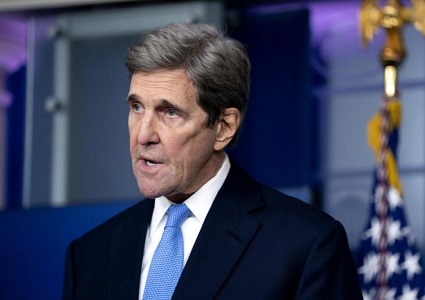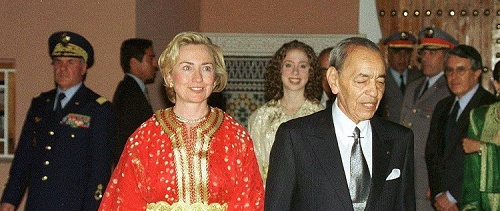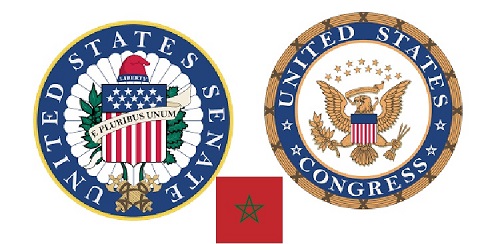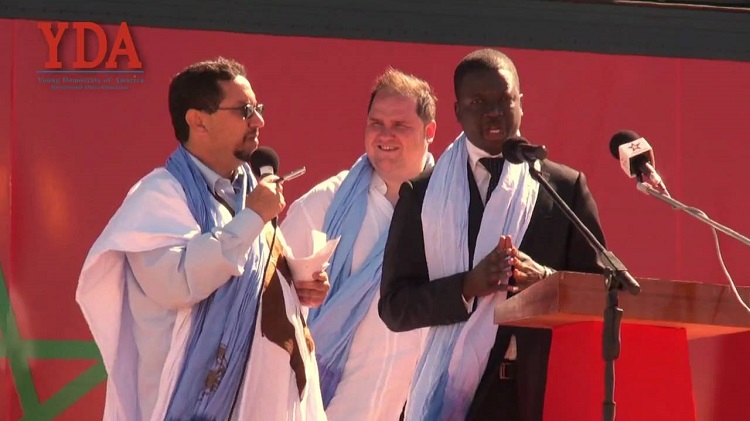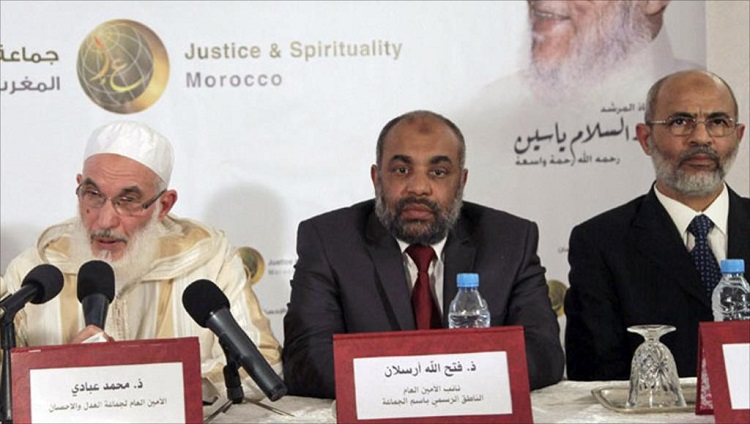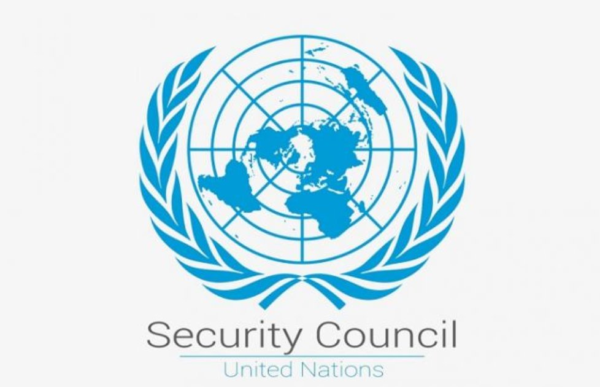Tags : Morocco, European Union, advanced Status,
By Dr Saad Dine EL OTMANI
Minister of Foreign Affairs and Cooperation of the kingdom of Morocco
As the European Union prepares to welcome in the upcoming weeks, its 28th member, and thus continuing its enlargement eastwards in what seems to be reaching its maximum capacity in the East, for obvious geopolitical reasons coupled with a stalled Union for the Mediterranean process, it is important to reflect on the future of the European Neighborhood Policy and the nature of the relationship that will bind the EU to its southern Mediterranean neighbors in particular the Kingdom of Morocco.
There is no doubt that interesting developments have taken place in recent years in the context of the Barcelona Process/Union for the Mediterranean process and the signing of the Morocco-EU advanced status agreement, however the Arab spring that glided through North Africa combined with a deadlock in the Middle East Peace Process has stalled this encouraging momentum. Today the EU partnership with its neighbors in the south Mediterranean can be viewed as a cup half full for some or a cup half empty for others.
In light of new disturbing challenges that have emerged in the Sahel region, particularly following the thwarted attempt of terrorist and extremist groups to take full control over Mali, it is now more than ever an urgent need for a renewed partnership between the EU and its southern neighbors.
Over the years, it is undeniable that Morocco has proven time and again that it is a pioneer, both as an Arab and an African country, in leading the way towards a more strengthened partnership with the EU and a renewed euro-Mediterranean order.
While history, geopolitics and trade may have contributed to this end, it is undeniable that the vision set out by the late King Hassan II and His Majesty King Mohammed VI towards a reinforced EU-Morocco partnership as well as shared values and aspirations, have been important driving factors behind one of the closest partnership that the EU has ever developed with a country on the southern shores of the Mediterranean sea.
The Morocco-EU Advanced Status Agreement: A clear recognition of decades of reforms by Morocco. Indeed the Morocco-EU partnership has grown steadily over the years. It namely witnessed an important leap forward with the signing, on 13th October 2008, of the Moroccco-EU advanced Status agreement that propelled the half a century old ties into a new level allowing for a strengthening of the existing multidimensional partnership at the political, economic and human levels. Through this agreement, Morocco and the EU agreed to give new impetus to their bilateral cooperation based upon shared values of democracy, rule of law, good governance, respect of human rights, a reinforced political dialogue, a common economic zone namely through the recent launch of negotiations over a new FTA, the gradual participation of Morocco in community activities and programmes as well as a common space for knowledge and cultural, university exchanges and scientific research.
Perhaps one of the most important aspects of this agreement is that it serves as recognition by the EU of the deep and multidimensional reforms that Morocco has undertaken at the political, economic, social, cultural and human rights levels on its path for greater openness and in its transition to greater democracy over the past two decades but also reflects the trust placed by the EU in Morocco to pursuing these efforts further. This agreement also entails that the Kingdom will continue upon the path of reforms that it has initiated while the EU will continue to support such efforts.
The advanced status agreement, the first in its kind to be signed with a country in the region, continues to represents an important step forward in the context of future prospects of cooperation within a revamped European Neighbourhood Policy. Morocco’s request for an advanced status was not aimed at standing out from the rest of the crowd but rather motivated by its belief in the need of a strengthened north-south euro-Mediterranean space. It is encouraging to see that Morocco’s approach has inspired other countries in the region such as Tunisia or Jordan to follow this same path and to review its partnership with the EU.
Morocco: a credible partner for the EU in an unstable southern Mediterranean zone. It can easily be argued that history, geography and a clear vision for a democratized Moroccan society are not enough, in an interest led world, to explain the nature of existing Euro-Moroccan relations.
Given the growing political changes that have shaken North Africa and the confirmed security threats that have emerged in the Sahel region, Morocco’s stability, its Arab, African and Mediterranean identities combined with its shared values of openness and democracy have been valuable asset for the European Union in the framework of the existing political dialogue. Furthermore, Morocco’s active involvement in finding solutions to conflicts affecting the African continent or the Arab world as well as its readiness to foster greater regional security cooperation have made Morocco a strategic interlocutor for the EU.
At the economic level, Morocco remains an important economic partner of the EU (Need to find statistics). As of march 1st, negotiations have begun between the EU and Morocco towards the signing of a Free Trade Agreement that will replace the existing association agreement. However, Morocco’s wide array of Free Trade Agreements already signed or are being negotiated with countries in North America (USA and Canada), the arab-mediterranean zone (Agadir agreement) and West Africa (UEMOA) represents an opportunity for the EU in a time marked by economic and financial difficulties.
Furthermore, Morocco’s vision for gradual convergence, technical twinning aimed to align its norms, standards and regulations to those of the EU are also an asset allowing for easier movement of goods and services. While more needs to be done, Morocco is determined to pursue this objective with the sole objective to align in the near future all its norms to those of the EU.
The way forward:
As the EU’s enlargement seems to be reaching its limits in the East, the southern shore of the Mediterranean represents a new frontier for enhanced and deepened partnerships. Analysis and reflexions on this issue should become a priority on both ends of the Mediterranean Sea to create a common strategic zone able to compete against other forums such as NAFTA or ASEAN.
Morocco’s partnership with the EU can be used as a model for others to follow.
Five years after the signing of the advanced status agreement, and as a new Comprehensive and deepened Free Trade Agreement is to be discussed next month (April 2013), it is important to envisage the future as well a new perspectives of the Morocco-EU relations through the establishment of a “privileged partnership” building upon the half a decade old ties and recent advancements.
If the Kingdom of Morocco is consciously required to continue on the path of political and socioeconomic reforms, the EU, for its part, is required to adopt a more open and balanced concept of partnership namely based on solidarity and security. The way forward will also require the EU-south Mediterranean partnership to be less focused on border control and security related issues but rather on enhanced cultural exchanges and development partnerships that take into account the issues of identity, cultural and “civilizationnal” diversity.
The democratic developments witnessed in the south Mediterranean basin, the recent financial shockwaves that rocked the biggest economies of the world all coupled with the emergence of multidimensional challenges, be it security, energy or environment related, as well as growing interrogations related to the issue of identity, all point towards the clear need of a debate of the future of the EU-South Mediterranean partnership and of a geostrategic transformation of the Mediterranean space.
The democratic transformation witnessed by Arab countries, in particular, implies the setting up of a newly conceived charter for the Mediterranean region covering, on an equal footing, the issues of regional security, democracy and common development and solidarity.
This charter can be built upon acquired assets of the early sixties with the signing of trade conventions, the cooperation agreements of the seventies, the partnership agreements of the nineties and more recently on the neighbourhood policy of the XXIst Century.
Such a charter could allow for the consolidation of economic integration between the two banks edified thanks to these conventions. It could also help to build synergies among the strategic priorities of all the members of the region towards the edification of euro-Mediterranean cultural body that brings together specificity and universality as well as openness and tradition.
At the economic level, this charter will target the creation of a joint competitive economic space able to face and compete against the American and Asian trade blocs, which would allow trade agreements (in agriculture, services and maritime fishing..) to flourish through the recovery of trade exports from the south to the north. This entails a more ambitious and evolving objective surmounting the limited logic of free trade and taking into consideration that the trade surplus of the EU in the Mediterranean region is the most important at the international level.
Culturally speaking, Morocco, which has always been at the forefront of countries concerned with the euro-Mediterranean partnership, considers that this new charter is meant to reinforce the values of openness, pluralism, diversity and respect of the specificities of each other.
The prevalence of the populist discourse in some regions of Europe raises questions of the purpose of the European Institution and threatens the cohesion and the culture of coexistence which has always characterized the Euro-Mediterranean space.
In this day and age, resorting to isolation or holding strongly to one’s identity without accepting the other’s goes against the existing trend of a more globalized world, increased mobility, economic competitiveness, new demographic equilibrium and technological development. All these aspects constitute an opportunity and a source of common wealth that would benefit all Euro-Mediterranean societies.
In the same context, a balanced approach to the issue of immigration covering all its aspects would allow to redress the demographic gaps between countries of the Mediterranean. This could be achieved through the encouragement of temporary immigration between these countries and ensuring greater social and economic integration of migrants in host countries.
This unique point in time in the history of the Euro-Mediterranean zone should be seized in order to build a newly reinvigorated Euro-Mediterranean Partnership, a partnership that is able to provide new synergies and opportunities, a safer and more secure Euro-Mediterranean zone while at the same time bringing hope and answers to the needs of the peoples of the Mediterranean.
Morocco is ready to play its part, in this new vision of the Euro-Mediterranean partnership, and to continue to play a pioneering role through the conclusion of a “privileged partnership” between the Kingdom of Morocco and the European Union.
#Morocco #UE #Advanced_status

